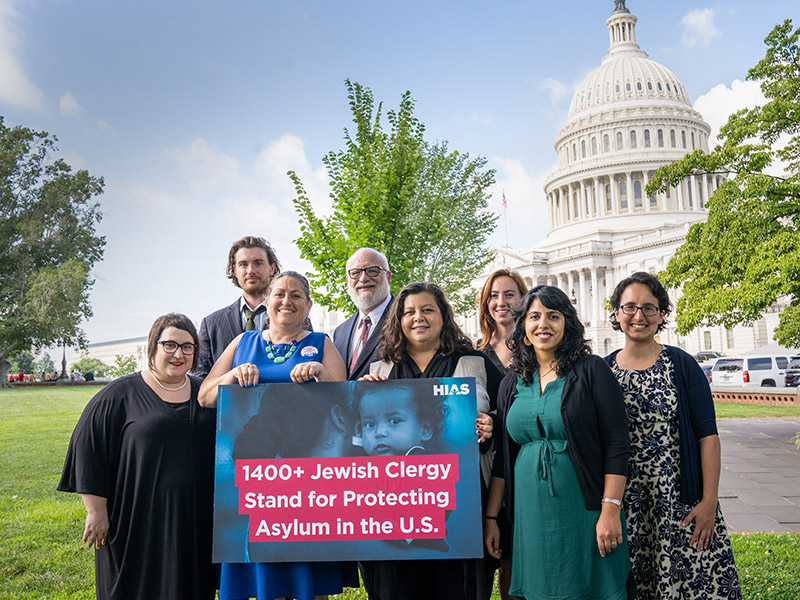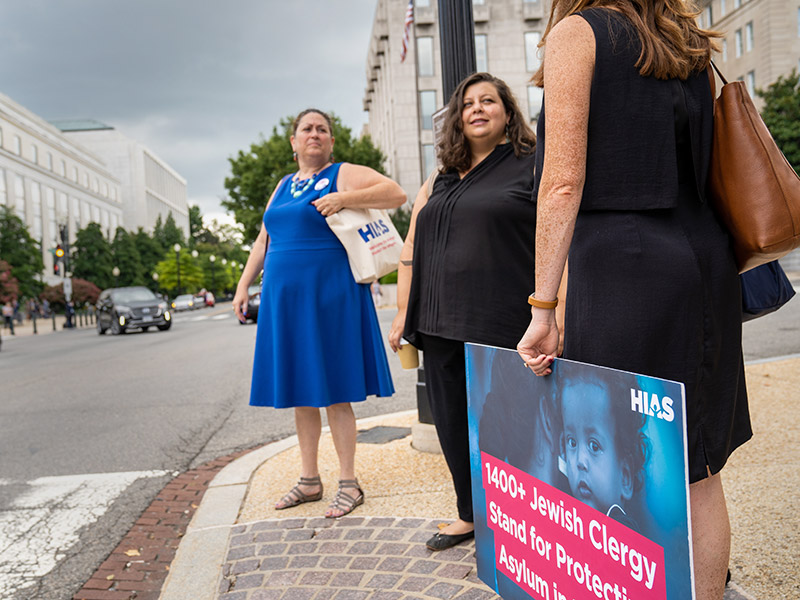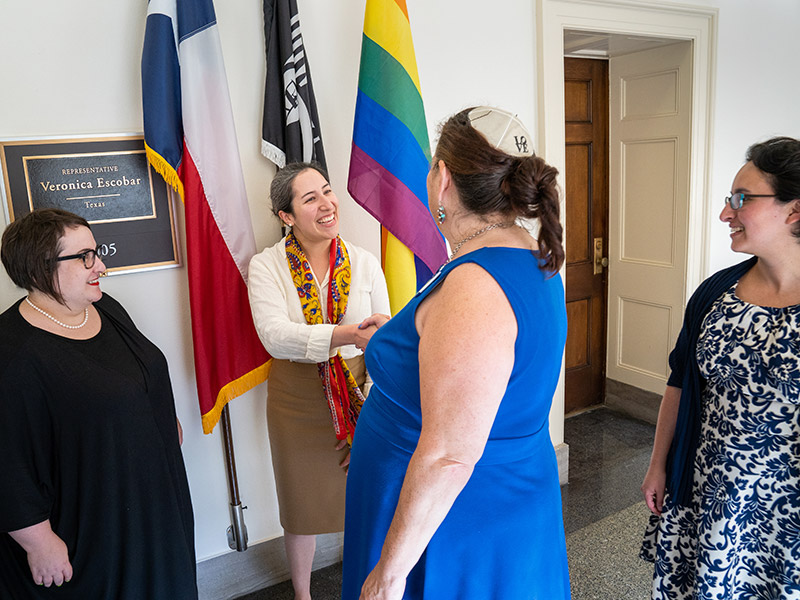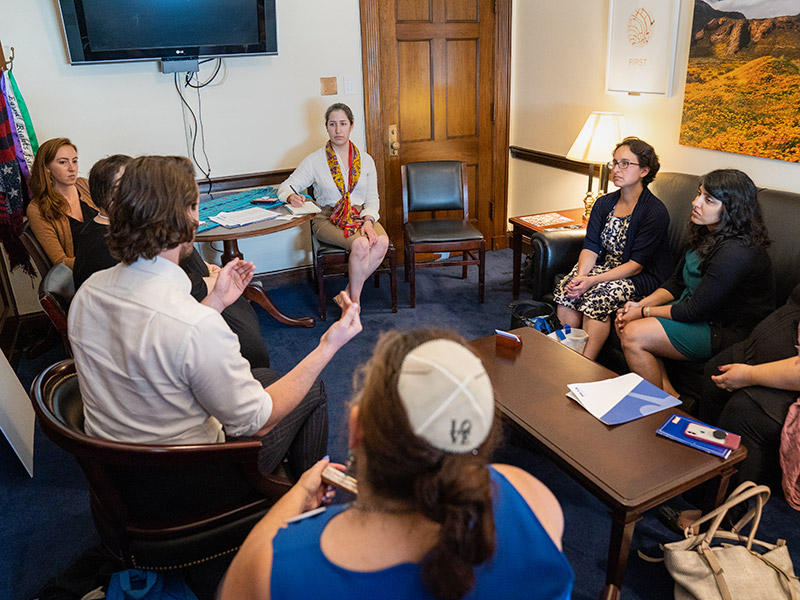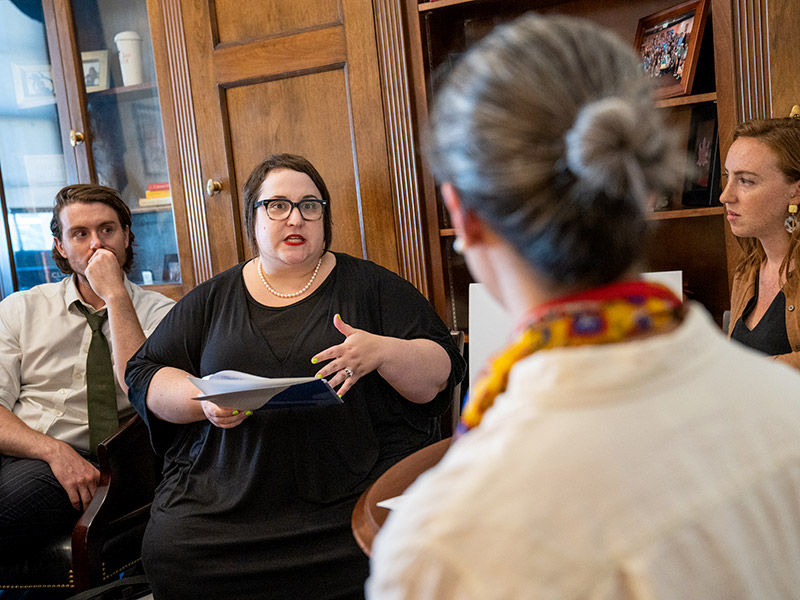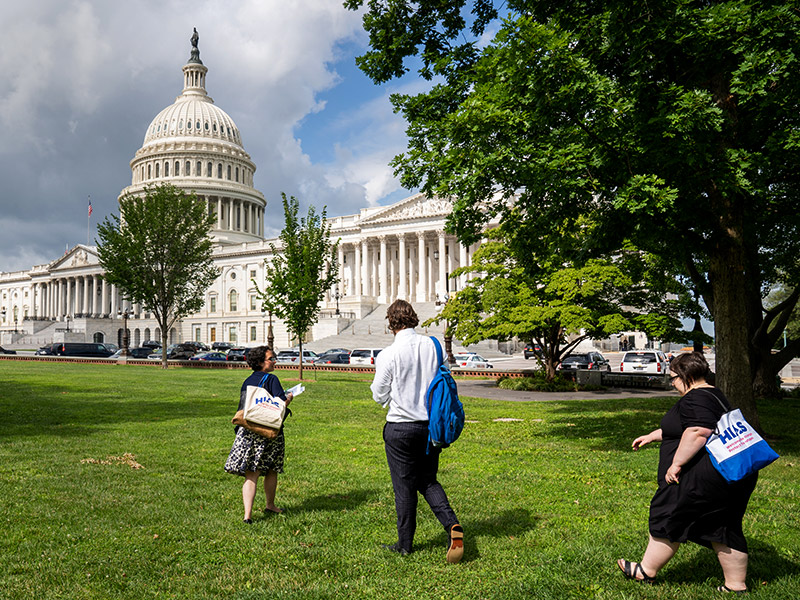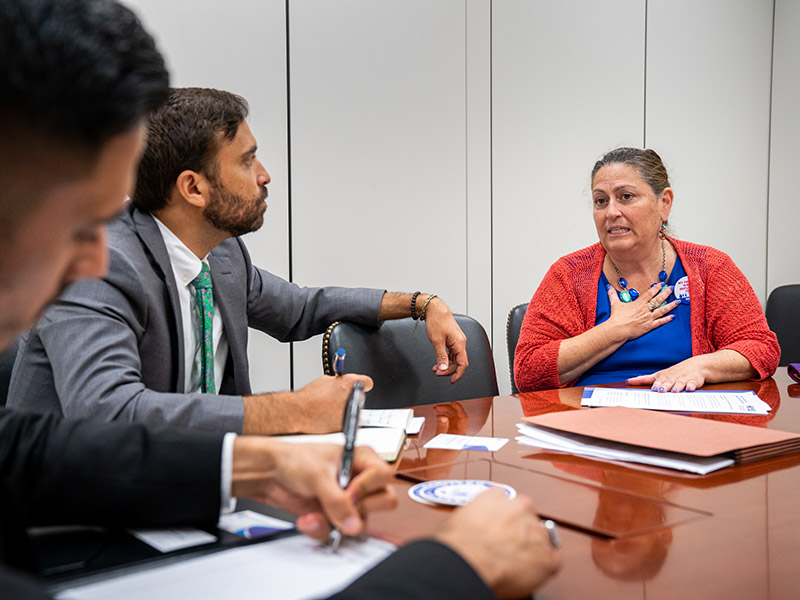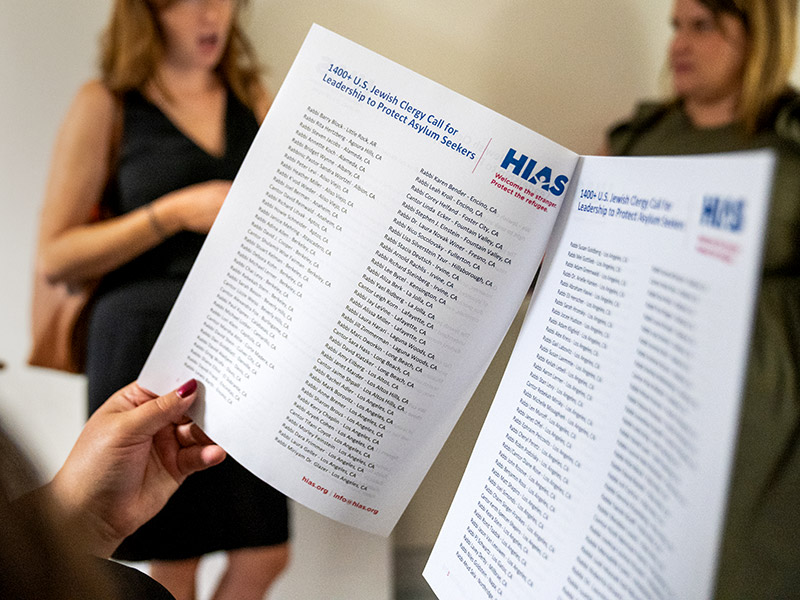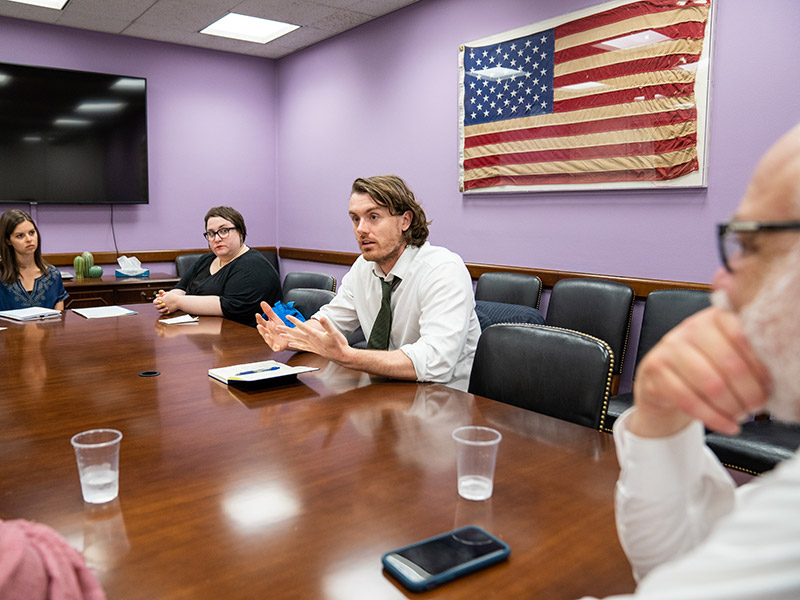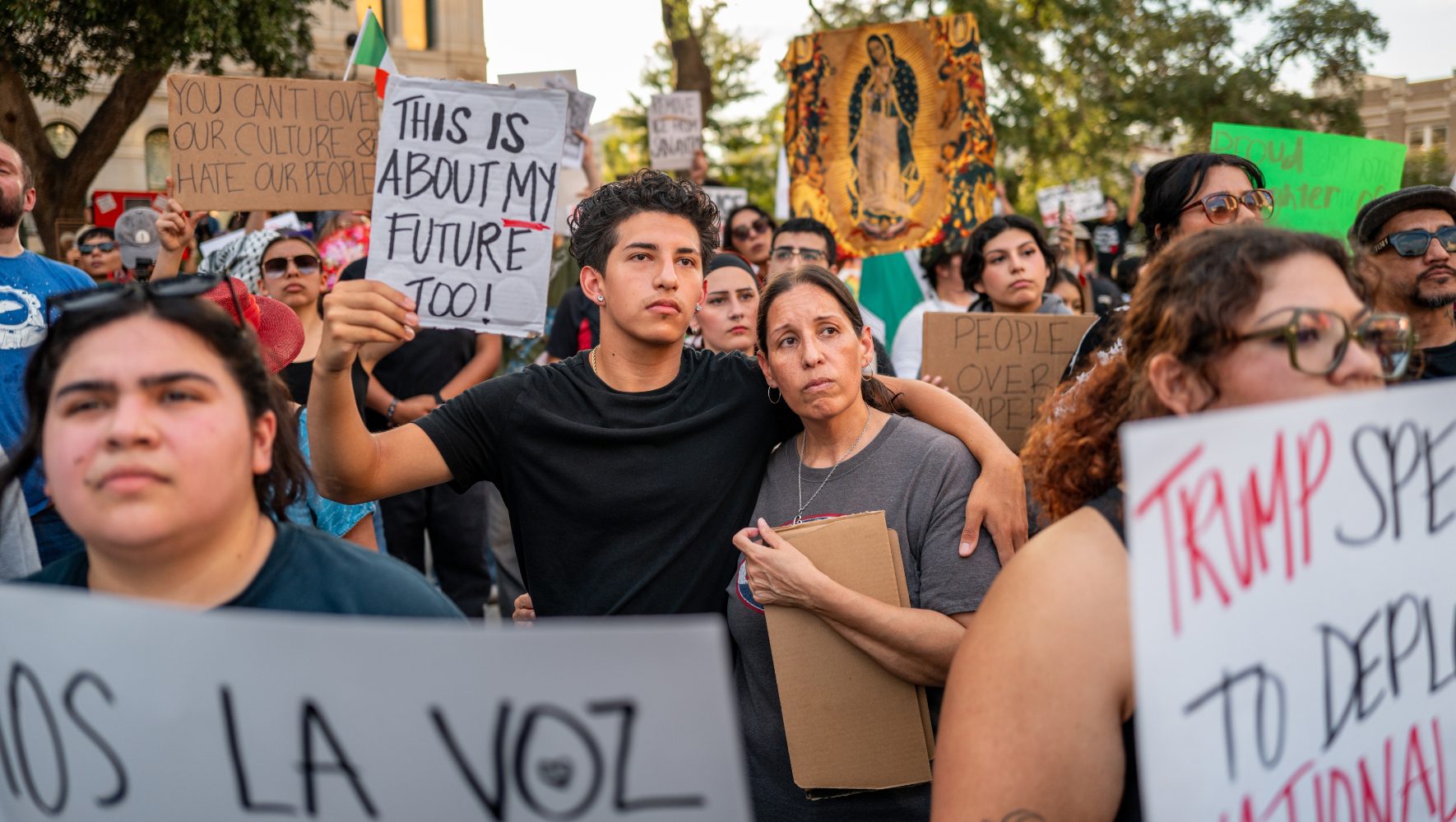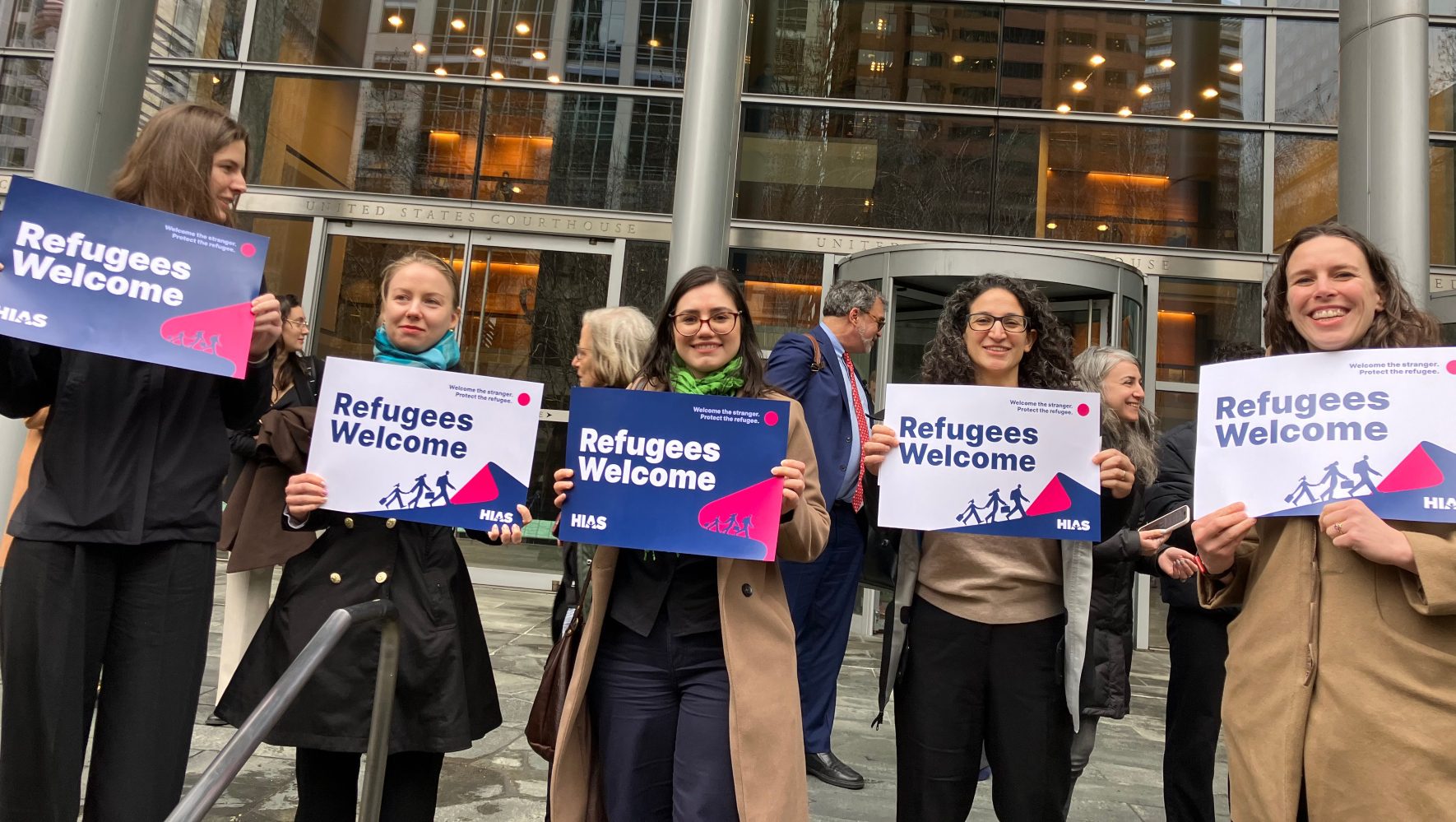Update: More Than 1500 Jewish Clergy Sign Petition to Protect Asylum
By Sharon Samber, HIAS.org
Jul 23, 2019
UPDATE: as of July 30, the number of signers is 1,530.
From Birmingham, Alabama, to Cheyenne, Wyoming, cantors and rabbis have signed on. And they are demanding action.
More than 1400 Jewish clergy members signed a petition calling on elected officials to protect the legal right to seek asylum in the U.S., and on July 18, a delegation of rabbis, attorneys, and advocates went to Capitol Hill to deliver it to key members of Congress. The petition, organized by HIAS, includes signers from 47 states and every movement of Judaism, who express concern over the United States’ treatment of asylum seekers, and call for urgent moral leadership from the U.S. government.
“The Jewish people know what it means to be turned away and to be denied protection,” the petition states. “As Jews we understand the heart of the refugee, and the current actions of our government echo some of the darkest moments of our own history. Our concern does not only apply to the Jewish past, but to our present.”
In the coming weeks, Jewish clergy and advocates in more than 20 states will deliver the HIAS petition to their representatives over the course of 80 visits to Congressional district offices.
“This country is a nation of immigrants, our story is one of immigration and travel from one place to another,” said Rabbi Elyse Wechterman, Executive Director of the Reconstructionist Rabbinical Association, who participated in the delegation. “We have an obligation to treat every person who comes to our border as created by God, with dignity and respect, and at the moment our country is failing to live up to that expectation. So I’m here to bring the message that we need to do better.”
The delegation met with congressional staffers just as the Trump administration proposing another rule that will sharply restrict access to the nation’s asylum system for anyone who did not seek protection from other countries before crossing the southern border. The policy shift could result in the administration deporting many asylum seekers back to their nations of origin, and discouraging others from trying to reach the United States.
Rabbi Harry Rosenfeld of Congregation Albert in Albuquerque, N.M., explained how his community has helped hundreds of asylum seekers, receiving busloads of people on their way to their sponsor families or immigration hearings and helping to arrange their travel.
“It has been an incredible outpouring of love and commitment,” Rosenfeld said. “We believe in justice...these are human beings and we have an obligation to them and to ourselves to make sure that they are taken care of and get to where they need to be.”
As the asylum crisis intensifies, HIAS is expanding its direct legal and social services for asylum seekers along the border and throughout the country. HIAS has sent three attorneys to the border to assist asylum seekers, in partnership with several nonprofit organizations. HIAS continues to send pro bono attorney delegations to the southern border, and is also opening an office in Mexico.
At meetings in congressional offices Nicolas Palazzo, a HIAS border fellow in El Paso who joined the delegation in D.C., discussed the harmful “Remain in Mexico” policy and argued for a more humane immigration policy. Palazzo is one of only a handful of attorneys regularly crossing into Mexico to provide legal guidance to asylum seekers caught in the changes to the system.
"The purpose of my visit was to dispel some of the myths and misinformation surrounding the border and the plight of migrants who are lawfully seeking their protected right of asylum,” Palazzo said. “The right of asylum and safe refuge is under assault and now, more than ever, it is absolutely critical that we bring an informed moral and legal perspective to the conversation on policy.”
Rebecca Kirzner, HIAS’ Grassroots Campaigns Director, called the petition “a powerful expression from the Jewish community,” but noted how it also reflects the broader participation and commitment from Jewish communities around the country who are volunteering and advocating for the rights of asylum seekers in their cities.
Here are ways to take action for asylum seekers.
